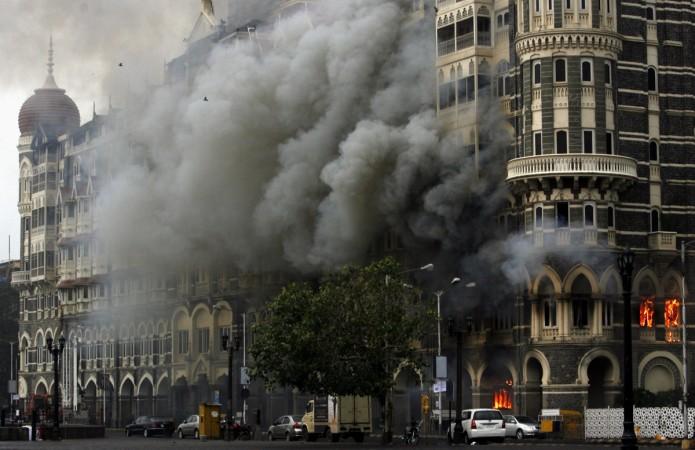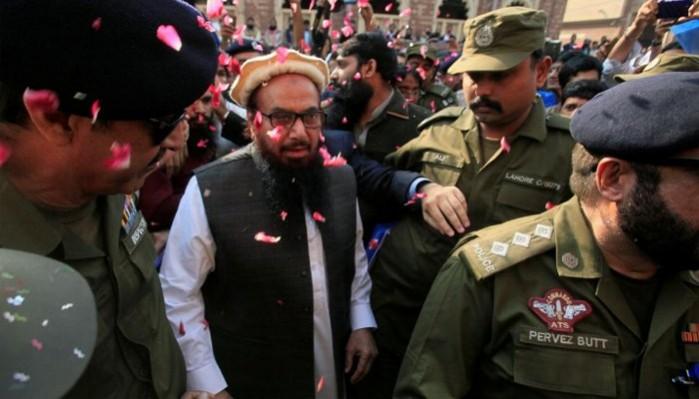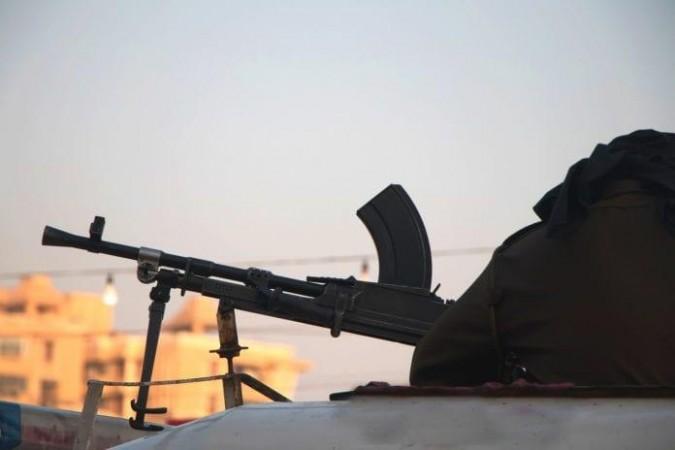Eyebrows were raised in New Delhi this week after the United Nations Security Council (UNSC) sanctions committee allowed payment of Rs 1.5 lakh (Pakistani Rupee) per month to Zakiur Rehman Lakhvi, one of the UN-designated terrorist and masterminds of the 26/11 Mumbai terror attack.
After being listed as a terrorist, Lakhvi's assets and bank accounts were frozen. Sources close to the development informed the media that the Pakistani government had put in a request to consider a monthly payment from his account to cover his expenses relating to food (Rs 50,000), medicines (Rs 45,000), public utility charges (Rs 20,000), lawyer's fee (Rs 20,000) and transportation (Rs 15,000).

The request has been approved by the UNSC 1267 Al Qaeda Sanctions Committee.
The UNSC has given approval for "basic expense" for Lakshar-e-Taiba's leader Zakiur Rehman Lakhvi and Mahmood Sultan Bashiruddin, a Pakistani nuclear engineer who founded and served as director of UN-listed entity Ummah Tameer-e-Nau. He was conferred the Sitara-e-Imtiaz (third highest civilian honour in Pakistan) by the previous Nawaz Sharif government.
Has it happened before?

Yes. Pakistan had gone to UNSC for Hafiz Saeed last year to get his basic expense with the body approving Islamabad's request. Saeed is responsible for 26/11 Mumbai attack and has a bounty of $10 million on him by the United States. Pakistan has said that such "an exemption was in line with the established procedures and practices of the UNSC 1267 Sanctions Committee".
What is a basic expense for UN Listed terrorists?
According to the Security Council resolution, asset freeze exemptions can be granted for what is called basic expenses. These include provisions such as payment for foodstuff, rent or mortgage, medicines and medical treatment, taxes, insurance premiums, and public utility charges, or exclusively for payment of reasonable professional fees and reimbursement of incurred expenses associated with the provision of legal services, etc. 1267 sanctions include three impacts--assets freeze, travel ban and arms embargo.

In this case, the request came from the Imran Khan government. Even in Saeed's case, last year, Pakistan put in the request last year in keeping with U.N. regulations, which allows for money to be released — but carefully monitored — from frozen bank accounts belonging to individuals declared terrorists by the world body.
However, Pakistani officials didn't reveal how many designated terrorists were on the list sent to the UN or how much money was released or the nature of the expenses for which the outlawed individuals required the money.
Why did no one object to it?
UNSC committee members generally do not disapprove of basic expense requests unless they are blatantly disproportionate, because it goes into all the humanitarian and human rights angles.
Now, one could legitimately ask the question of whether Pak 1,50,000 rupees a month is just "basic" expense. 150,000 Pak Rupees a month is equivalent in cost of living terms to about $6,500 in New York per month or Indian Rs 70,000.
Benefit for Pakistan
For someone like Pakistan, it is gaming the system, just using the UN loopholes to manoeuvre its own cards. Technically and procedurally, they are well within their rights. But the only understanding is that Pakistan is not paying Lashkar. They are using the loophole to allow Lashkar to draw its own funds from its bank accounts which are frozen.
The 26/11 Mumbai attacks, planned both by Lakhvi and Saeed, killed more than 160 people. Lashkar-e-Taiba militants also carried out a series of attacks that culminated in the siege of a luxury hotel.

A Pakistani anti-terrorist court had convicted Saeed in February and sentenced him to 5 1/2 years in jail on convictions of financing terrorism and having links with terrorists. He has appealed his conviction and sentence.
Instead of going to jail, however, Saeed was put under house arrest at his sprawling home in the Johar neighbourhood of the eastern city of Lahore, the capital of Pakistan's Punjab province.
Of course, how would the designated-terrorists operate if they are actually detained? Lashkar-e-Taiba has been linked to Pakistan's powerful military and intelligence service, although the country, which has been known for harbouring terrorists on its soil, has routinely denied any links. Its activities are mostly directed against India, especially Kashmir.

















